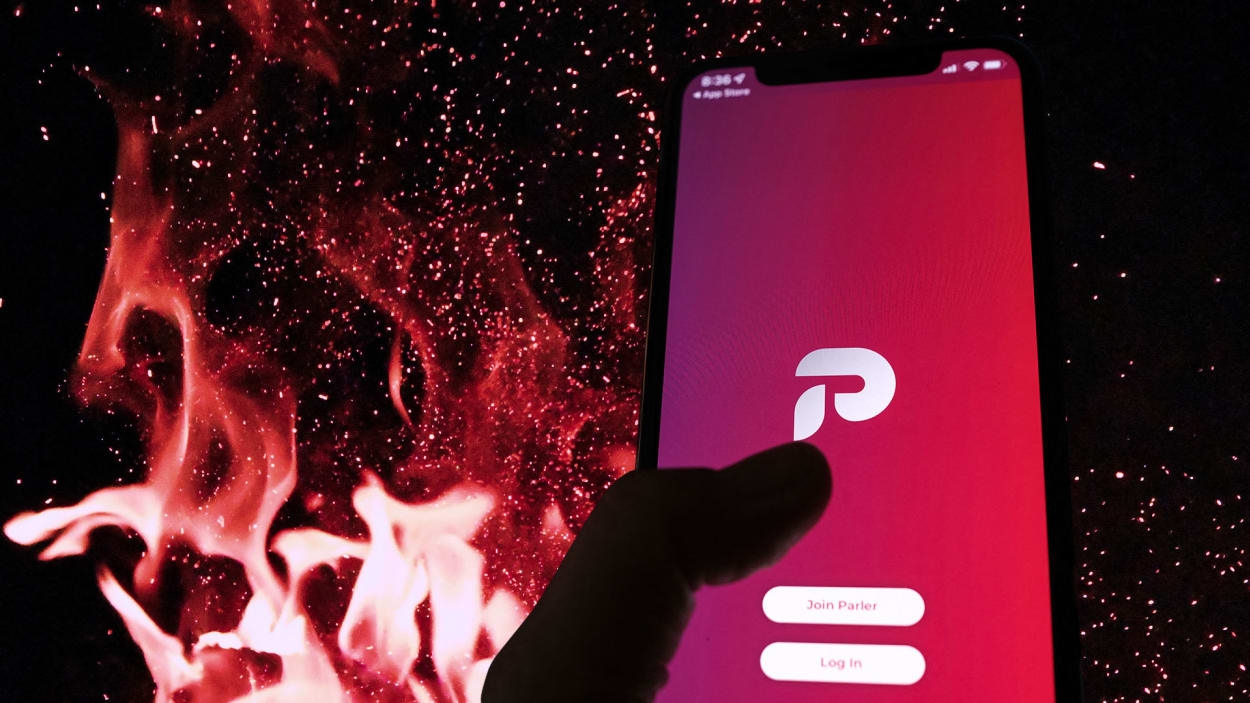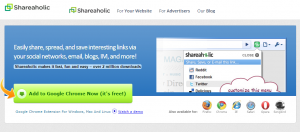Activity on social media networks like Parler, which was created for the “canceled” among us, seems to foment IRL political unrest, a new Yale University study claims.
Curious what role, if any, the right’s “parallel economy” rival to Big Tech potentially played in 2020’s long string of protests, researchers led by Yale sociologist Daniel Karell used Parler metadata to look for patterns between when and where users posted on the platform, and when and where armed conflicts and other protests occurred in America, starting in January 2020 and going until January 6, 2021, the day the U.S. Capitol was attacked. They write that their findings were twofold: People didn’t use Parler that often to plan protests, but the data shows that if Parler users in a certain region discussed unrest, that region was more likely to see conservative protests the following month.
The authors point to Parler as one of the best examples of what they call “hard-right social media” (HRSM)—something they define as “alt-tech” with key distinctions. Alt-tech tends to be a generic term meaning nonmainstream social media platforms that market themselves as having more lax content moderation policies. The HRSM subclass, which includes a variety of other platforms like Rumble, Gab, and Trump-backed Truth Social, is conservative but not necessarily far or extreme right, the authors note. Most content actually aligns with mainstream conservative views; “hard-right” is therefore meant to emphasize the crowd’s serious opposition to ever re-integrating with traditional platforms. This creates an ecosystem where it’s often a badge of honor to have engaged in some activity that got the user banned by Facebook or deplatformed from Twitter.
The authors relied on Parler activity data because it has a large pool of users, and they’re reliably uniform and consistent in their HRSM activity. That is, “Users would interpret even seemingly apolitical activity or content as part of hard-right discursive activity given that it is on Parler.” Data on U.S. armed conflicts came from the Armed Conflict Location and Event Data Project, a nonprofit that studies political violence in 100 different countries and protest records from the Crowd Counting Consortium, which documents unrest nationwide.
The methodology involved tracking where and when conservatives were participating in events logged by the two aforementioned groups, then seeing if these were hotspots that correlated to Parler post activity. They also mapped political unrest and Parler posts over time. Their final findings were that for every 10% that activity on Parler increased, there was a 0.04% increase during the next month in events tied to civic unrest. “Under what we argue are reasonable assumptions, the effect can be interpreted as causal,” they write.
Once they established a correlation, the researchers turned next to potential causes. Because the data didn’t support the claim that individuals were using Parler to coordinate or join protests, the researchers write that Parler instead seemed to effect a more momentous change: It shifted users’ beliefs on appropriate social norms, creating what the authors label “mis-norms.” Parler users “came to view participation in hard-right unrest as more acceptable than they once thought,” they write, “thereby making offline unrest more likely after HRSM activity.”
The authors are careful to also note that this correlation isn’t limited to conservative alt-tech. A similar effect could theoretically be present on left-leaning platforms, too—only Parler and Truth Social don’t really have liberal rivals. Their closest analogs were probably a pair of platforms called Liker and Tribel. Billed as a “Facebook for liberals,” Liker launched in 2018 and quickly became aflush with made-up Trump news, before being shut down by its creator, Occupy Democrats founder Omar Rivero, in 2021. Tribel is supposed to be a “new social network that nurtures intelligence and kindness instead of hatred,” and it, too, was created by Rivero. However, neither platform would ever have Parler’s or Truth Social’s reach, and influential liberal journalists, progressive celebrities, Democrats who hold office, and a former U.S. president are not active users.

In an interview with Yale News, Karell, the study’s lead author, acknowledged that Parler’s effects on unrest were “modest,” but also gave reasons why they shouldn’t be dismissed. Social media platforms are very easy to join, he noted. Alt-tech is growing more popular, and this category continues to attract investment. (Last week, after news broke of Donald Trump’s indictment, shares of Truth Social’s SPAC soared by more than 10%.)
The authors make one final point about context: Unlike mainstream social media, these hard-right platforms “are isolated and unused by the majority of media consumers,” giving their content “a relatively limited diffusion, or reach.” In 2020, Parler had just 13 million accounts. More recent surveys, like one by Pew Research in 2022, have shown that as many as 6% of American adults (roughly 16 million) regularly get news from hard-right platforms Parler and Truth Social. To make a highly imperfect comparison, when the “Tide Pod challenge” was going viral in 2017 across Facebook and Instagram—which together counted hundreds of millions of users—poison control center calls for eating laundry pods actually declined that year.
(2)






